Biosensoren & Smart Medical Devices
Im Forschungsbereich Biosensoren und Smart Medical Devices arbeiten Forschende an neuartigen Konzepten und Technologien um die elektronische und chemische Erfassung von Signalen aus biologischen Systemen zu verbessern und daraus medizinische Anwendungen zu generieren.
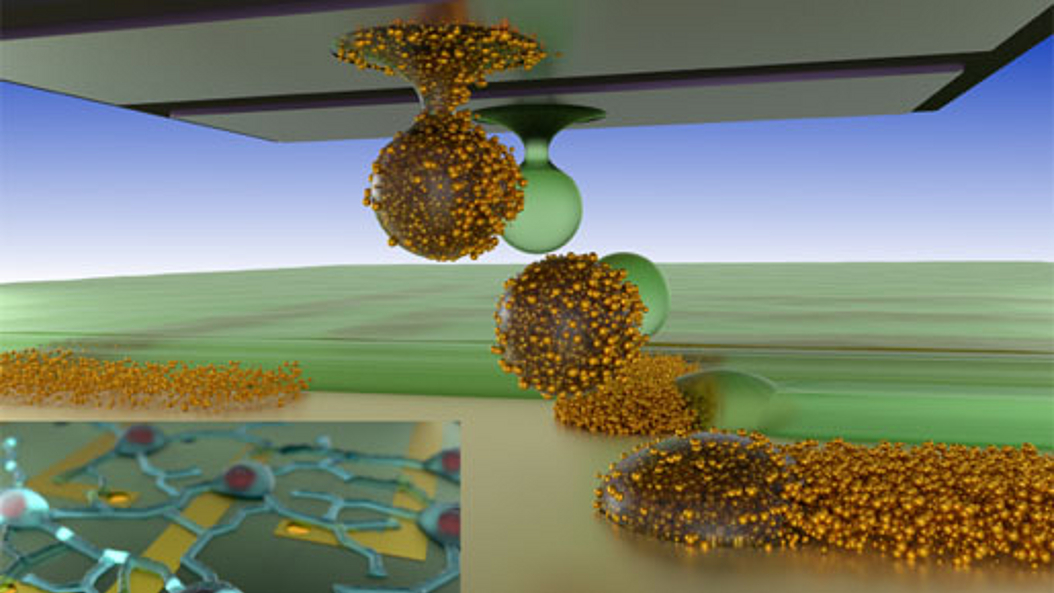
Neuroelektronik
PI Bernhard Wolfrum
Assoziierte Professur für Neuroelektronik
Publikationen
Bernhard Wolfrum, Professor für Neuroelektronik, und sein Team erforschen bioelektronische Schnittstellen und Biosensoren. Diese Forschungsbereiche sind für die Neurotechnologie relevant und kommen in der patientennahen Labordiagnostik („Point-of-Care“) zum Einsatz.
Die Forschenden entwickeln Geräte zur Stimulation und zum Messen von neurologischen Signalen in vivo und in vitro. Sie setzen dabei klassische Mikrofabrikationstechnologien und 3D-Druckverfahren ein. So können sie dreidimensionale Elektrodenarrays in weiche, flexible und biokompatible Materialien integrieren.
Im Bereich der Biosensorik entwickeln die Forschenden elektrochemische und Impedanz basierte Detektionsverfahren. Zudem modulieren sie den Massetransport durch integrierte Mikrofluidik. Ihre Systeme sind sowohl zum Einsatz in der invasiven und nicht-invasiven Neurotechnologie als auch für in vitro Anwendungen von Biosensor Assays konzipiert. Sie könnten zukünftig auch zum Monitoring von dreidimensionalen Systemen wie Zellkulturen und Organoidsystemen verwendet werden.
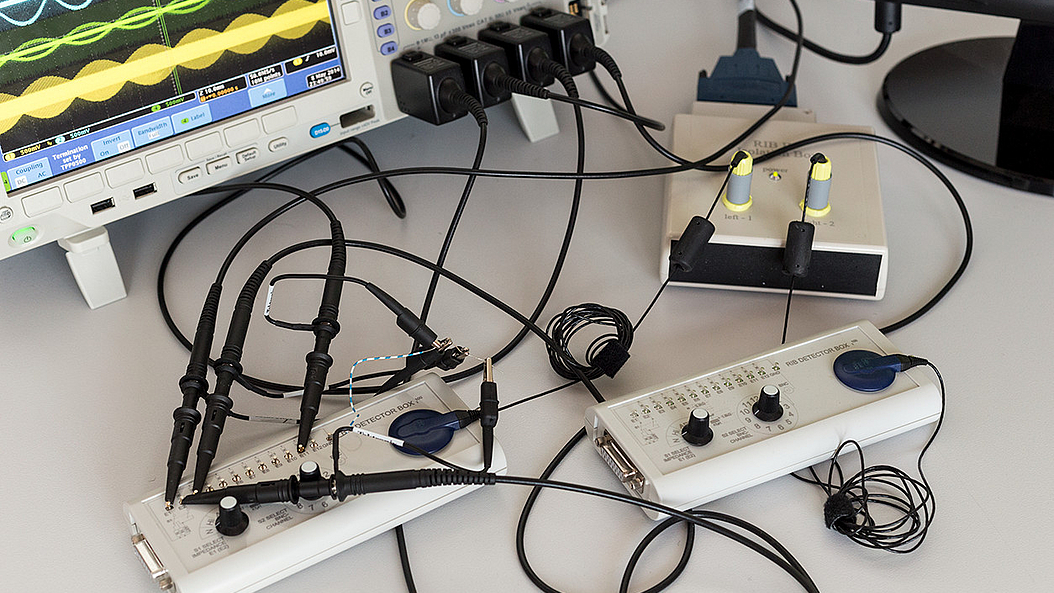
Audio-Signalverarbeitung
PI Bernhard Seeber
Professur für Audio-Signalverarbeitung
Publikationen
The Audio Information Processing group investigates the processing of sound in the human auditory system and uses this knowledge to improve hearing devices and audio systems. Experiments on how we perceive sounds guide the group in building signal processing models of the hearing system. Such models form the basis for audio coding („mp3“) and hearing device processing, and help design product sound quality.
The focus of the group is on improving hearing devices through novel approaches for audio coding in neuronal prostheses (cochlear implants) and hearing aids. They are interested in the brain’s processing of acoustic scenes with multiple sounds and reverberation because these are particularly challenging situations for people with hearing impairment.
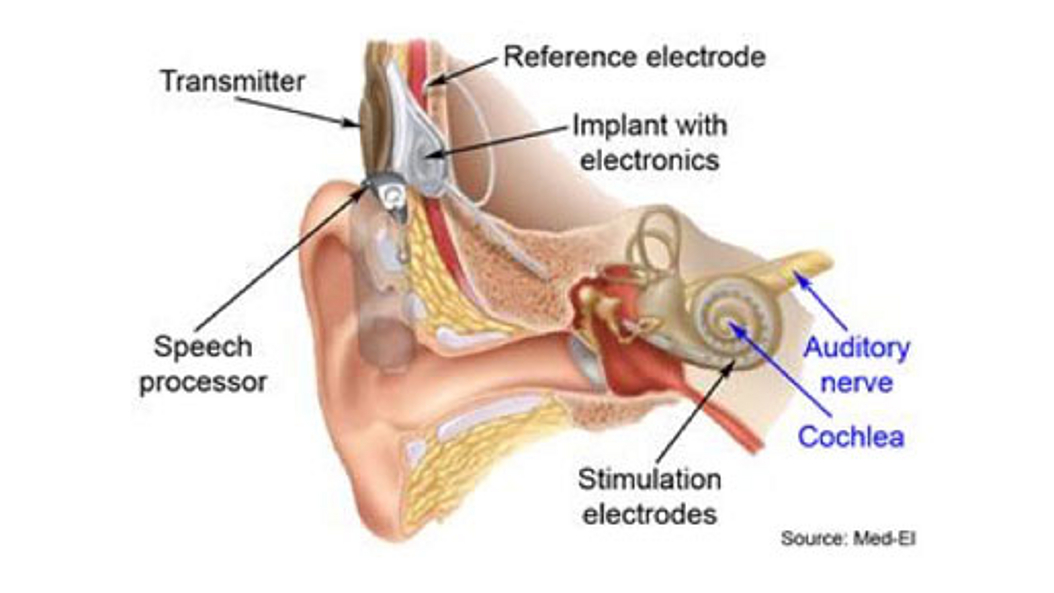
Bioanaloge Informationsverarbeitung
PI Werner Hemmert
Professur für Bioanaloge Informationsverarbeitung
Publikationen
The cochlear implant is the most successful neuroprostheses, and this project develops novel approaches for the advancement of neuroprostheses, where the main research focus lies on cochlear implants. They replace a full sensory organ and are able to restore hearing and especially speech understanding to a surprisingly high degree. The research success relies on the combination of theoretical concepts (models of the electrical excitation of neurons, sound processing in the auditory pathway), development of novel technology (e.g. binaural listening technology), objective measurements (recording of evoked neuronal potentials) and listening experiments, which is conducted in close collaboration with workgroups from the fields of biology, medicine and industry.
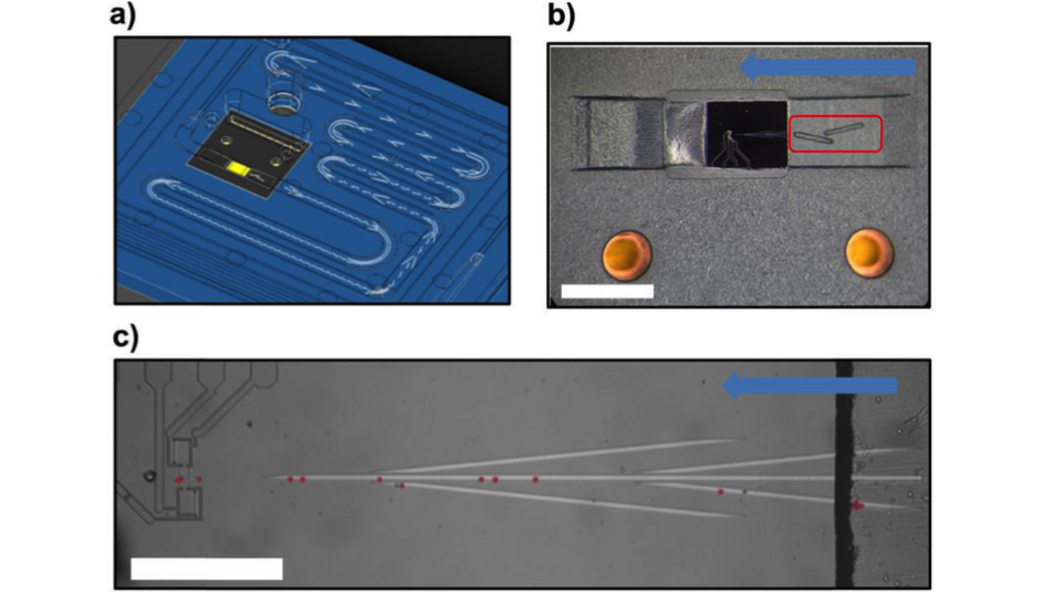
Measurements of Cell Function
PI Oliver Hayden
Heinz-Nixdorf-Lehrstuhl für Biomedizinische Elektronik
Publikationen
Cells are the smallest integral unit of life. However, integrated testing of cell function and cell-cell interaction on various time scales is an unmet clinical need. In a highly interdisplinary research field at the Chair of Biomedical Electronics the team around Professor Hayden focuses on workflow integration and biosensing methods for precision measurements of cell function. (a) A magnetoresistive sensor, adopted from hard disk read heads, is tuned for single cell analysis with respect to cell size, magnetic loading of cells, and cell morphology. (b) To minimize Si area for bedside Point-of-Care Testing they have designed a functionalized semiconductor package housing a 2×2 mm² sensor in an injection moulded microfluidic device. (c) The system balances magnetophoretic and hydrodynamic forces for precise and highly reproducible probing of single cells and thus could provide cell function testing in an integrated workflow at the bedside for fast clinical outcome.
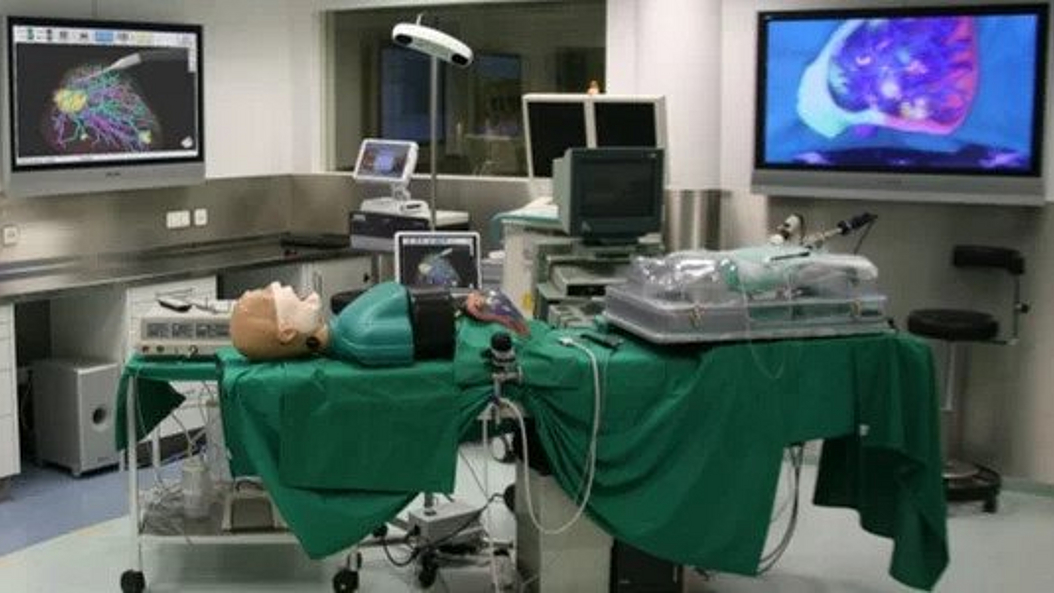
Mikrotechnik & Medizinische Gerätetechnik
PI Tim Lüth
Lehrstuhl für Mikrotechnik und Medizingerätetechnik
Publikationen
Professor Lüths Forschung betrifft die Entwicklung von Verfahren und mechatronischer Systeme auf den Gebieten Medizingeräte und Roboter für die Chirurgie, Rapid-Prototyping, sowie Assistenzsysteme für ältere Menschen.
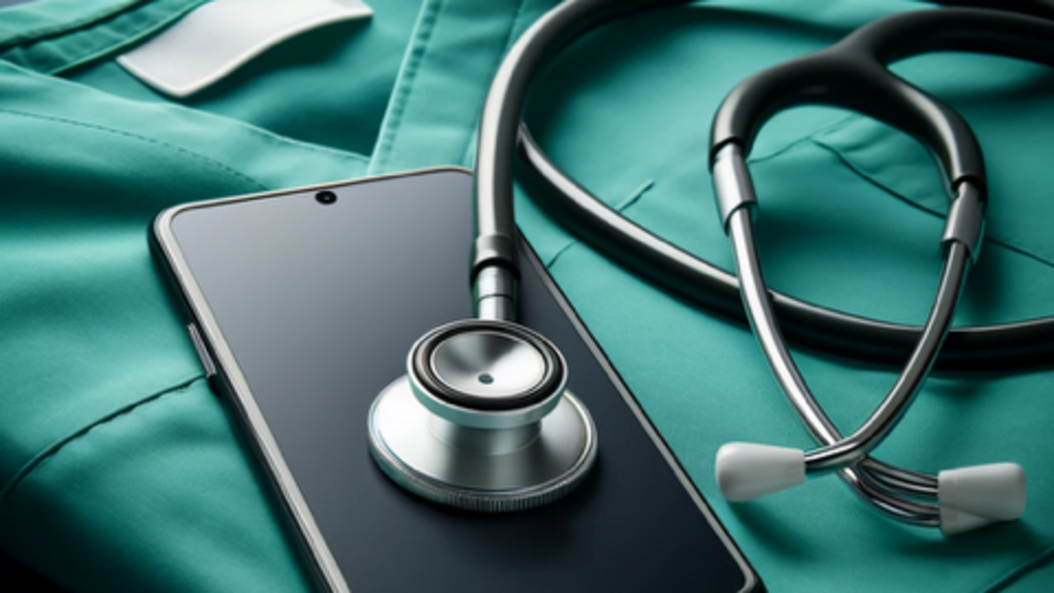
Health Informatics
PI Björn Schuller
Lehrstuhl für Health Informatics
Publikationen
CHI – the Chair of Health Informatics – combines computer science with modern health care and medicine. The main focus lies in the acquisition, analysis, and interpretation of biosignals including in daily life, such as those generated in monitoring heart activity, metabolism, or neuronal activities. Additionally, acoustic, visual, and a variety of other parameters are also evaluated. The goal is prevention, diagnosis, as well as decision support and intervention through efficient, transparent, and trustworthy methods of current Artificial Intelligence.